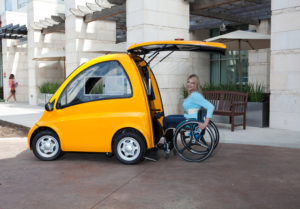The Yin and Yang of Democratic Messaging: What they Should Say
Robert Hubbell’s Today’s Edition politics newsletter (which I read daily) quoted a reader who suggested that Democrats label the Republican platform for 2022 as “The Big Steal.” Here is his suggestion, with edits and additions by me:
Vote Republican, and you vote for the “Big Steal”:
Your Social Security will be stolen.
Your Medicare will be stolen.
Your prescription drugs will be stolen.
Your affordable health care will be stolen.
Your right to privacy will be stolen.
Your control over reproductive choices will be stolen.
Your voting rights will be stolen.
Your right to elect leaders will be stolen.
Our democracy will be stolen.
It’s not perfect, but you get the idea. Iterations are endless. Republicans want to take things away (The Big Steal), including personal liberties and equal protection under law. Democrats want to provide Americans the things they need to lead safe, healthy, productive lives—including personal liberties and equal protection under the law. Somewhere in there is a winning message.
Republicans doing The Big Steal is half of the messaging. Yes, absolutely, we need to show that corrupt and greedy party for what it is. But we also need another half, maybe call it The Big Payoff. And the second part will subdivide into two as well.
The first part will be what the Democrats have actively accomplished. They have created jobs in a terrible economy. They have restored us leadership in the world sphere. They have taken some action to mitigate climate change. They have stood up for integrity of the political process and showed that insurrections and coup attempts will not be tolerated here. They have supported Ukraine against Putin’s barbaric war. And they have restored dignity and mission to a corrupt and twisted executive branch.
The second part is the wish list: things Biden and the Democrats tried to do but were blocked by filibusters, judicial opinions, or just plain refusal to cooperate from the Republican side. This would include Build Back Better, protecting the right to vote, protecting women’s right to control their own bodies, meaningful progress on the biggest issues like climate change and immigration reform, and of course, the right of regulatory bodies to regulate. Not only have Republican judges forced the CDC–which stands for, let us remind them, Centers for Disease Control–to give up protecting the public in transit facilities, but other decisions will threaten such rights as environmental protection and labor protection, using that very bad precedent to attack EPA and OSHA. Let’s also talk about the right not to be sitting next to someone who is carrying a concealed weapon. The right to love and marry whom you choose as long as they are above the age of consent. Etc, etc, etc

